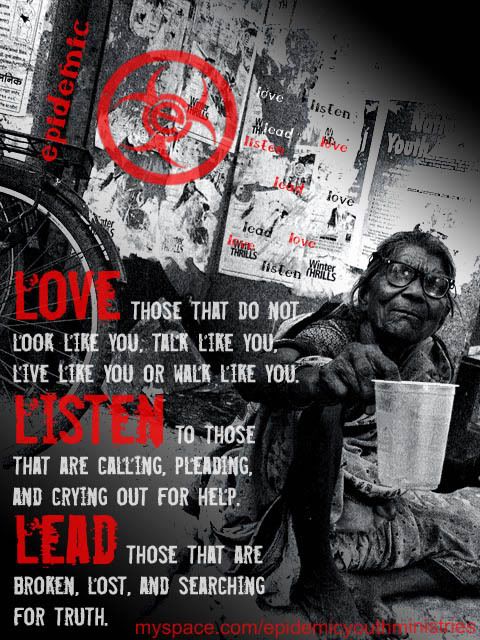IRIN Report: SWAZILAND: Growing number of children working
[This report does not necessarily reflect the views of the United Nations]
MANZINI, 10 November (IRIN) - Rights activists have demanded laws to protect Swaziland's children, particularly its growing population of AIDS orphans, from being exploited as cheap labour.
With the current AIDS orphan population of 69,000 expected to rise to 120,000 or possibly even 150,000 by 2010, "these uneducated, unsupported children risk not only exploitation as labour use, but child labour of the worst kind. Today, 50 percent of children engaged in the sex trade are orphans," said Velephi Riba, consultant to the South African NGO, Reducing Exploitive Child Labour in Southern Africa (RECLISA), at their second national conference, held this week in the commercial city of Manzini, 35km southeast of the Swazi capital, Mbabane.
The HIV/AIDS prevalence rate in Swaziland is 34.2 percent and approximately 10 percent of households are now headed by children, according to the United Nations Children's Fund (UNICEF).
"The minimum age to work was set at 15 to 18 years - depending on the work - by the Employment Act of 1998," said Commissioner of Labour Jino Nkhambule. "This will be augmented by the new Child Welfare legislation when it is passed, and will allow for an expansion of my labour inspector team specific to child labour."
Nati Vilakazi, coordinator of the rights NGO, Save the Children-Swaziland, said the existing law provided limited legal and social protection for working children and exempted agriculture and domestic labour. "A child is defined as anyone aged below 16, against the internationally recognised age of 18."
UNICEF's Swaziland mission has found that orphans were twice as likely to engage in child labour, while a World Bank study pointed out that Swaziland has the highest number of school dropouts in Southern Africa. However, Riba cautioned that a ban on child labour had to be coupled with programmes that enabled a family to find other avenues of support.
"We don't want child labour - the effect on psychological and social development are detrimental - but in our intervention we don't wish to make the situation worse, which may only push children into the worst type of child labour," she told IRIN.
RECLISA has targeted 2,000 vulnerable children felt to be at risk of forced labour in the impoverished southern Shiselweni region, where agricultural production has been hard-hit by drought and AIDS. This week's conference was meant to jump-start child labour legislation that has been languishing with government since 2003, awaiting final drafting and presentation to parliament.
"Poverty is a major 'push' factor for child labour in Swaziland. It has become worse, with 69 percent of Swazis living in poverty today, 76 percent in rural areas," said Riba. According to the UN Development Programme, two-thirds of Swazis live in chronic poverty as peasant farmers under palace-appointed chiefs who administer communal Swazi Nation Land.
She commented that Swaziland's excessive rich-poor divide - the most affluent 20 percent of the population consumes 56 percent of the gross domestic product, while the poorest 20 percent consume only 4.3 percent - and the twin problems of high unemployment and low pay for those who do find work, create the economic necessity for child labour in some households.
The authorities lack the capacity to monitor workplaces: sixteen labour inspectors monitor 5,000 formal-sector workplaces, where slightly more than 100,000 people are employed. The informal sector has many more, and are usually not monitored.
"Children are the cheapest to hire, easiest to fire, and least likely to protest," said policy analyst Duncan Reed.
Conference participants reported an upswing in the number of children scavenging waste dumps in Manzini and the adjacent Matsapha Industrial Estate, and working in illegal bars, or as sellers of home-brewed beers in urban townships.
Swaziland's most famous exploited children remain where they have been for at least two years - dancing in makeshift costumes all day long for tourists along the highway in Pigg's Peak, capital of the northern province of Hhohho.
Mumcy Dlamini, Acting Director of Public Prosecutions and the first woman to hold the position, told the conference that the new child labour law stipulated penalties for violators.
"We have not seen a docket coming to our office on child labour violation - this has never been prosecuted in Swaziland. This could be due to a failure of reporting. The new law will contain a fine of not more than (US$435) for an employer violating child labour rules, or a custodial prison sentence of not less than one year," she said.
Rights activists have also called for a review of Swaziland's constitution, which allows underage girls to get married. Dlamini said traditional marriage was misused by elderly men to secure household labour.
"You ask yourself, why do these men marry a child? Mainly, they do this because they want to make the child work at their homes, with the ... [justification] that they are their wives. This is a vacuum that we need to address," she told conference delegates.
The new constitution, which is likely to be approved next year, defines a child as any person younger than 18 years, making a traditional marriage to a child a violation of the girl's constitutional rights. The constitution also forbids child labour, and calls for universal education for Swazi children.
Conference delegates cited studies showing that the need for child labour decreased as family income rose, and endorsed anti-poverty efforts by government and the NGO community. Compulsory education was mooted as another insurance against child labour abuses.
The recommendations will be presented to the Ministry of Enterprise and Employment, to ensure that the proposed child welfare legislation conforms to the International Labour Organisation's Convention 182 and other child labour accords to which Swaziland is a signatory.
jh/jk/he/oa
[ENDS]
Labels: africa, AIDS, AIDS orphans, child labor, children, news, orphans, poverty, swaziland, work











